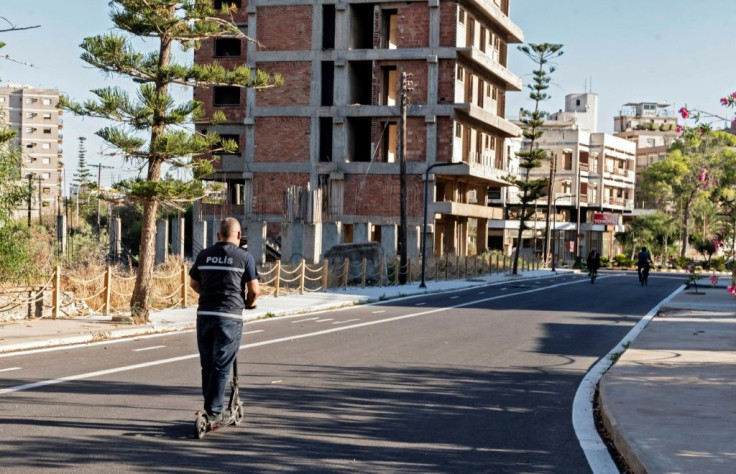Greece, Cyprus Win Jordan Backing Against Erdogan 'Ghost Town' Plan
Greece, Cyprus and regional ally Jordan on Wednesday called for a "comprehensive and viable settlement of the Cyprus problem" after Turkey said it would reopen a former resort in the disputed north of the island.
Leaders of the three countries, speaking at a summit in Athens, were responding to Turkish President Recep Tayyip Erdogan's announcement last week of plans to reopen Varosha.
The former resort has been a fenced-off ghost town since a 1974 invasion by Turkey resulted in a UN-monitored standoff that divided the Mediterranean island.
According to a joint statement issued after the summit, the three leaders said they were committed to a "comprehensive and viable settlement of the Cyprus problem in line with the relevant UN Security Council resolutions and international law".
Greek Prime Minister Kyriakos Mitsotakis called the recent developments on Cyprus "deplorable".

In opening remarks, he said that the summit between the three leaders "reflects the commitment of our countries to promote peace stability and prosperity in our wider region".
Cypriot President Nicos Anastasiades said he briefed the other leaders "on the Cyprus problem especially after the recent announcements that have been condemned by the UN Security Council, as well as by the EU".
The EU, of which Cyprus is a member state, condemned "Turkey's unilateral steps and the unacceptable announcements" and demanded Ankara reverse a decision that threatens the delicate status quo in the region.
Erdogan vowed that "life will restart in Varosha" during a controversial visit to mark 47 years since the invasion that split Cyprus.
Greece and Cyprus have been seeking to expand cooperation with other countries in the region with an eye on Turkey's more nationalist and expansionary policies under Erdogan.
"We are nations that share the Eastern Mediterranean (region) and I think we will continue to play a vital role and look for wider cooperation," King Abdullah II of Jordan said during Wednesday's trilateral meeting.
© Copyright AFP {{Year}}. All rights reserved.





















